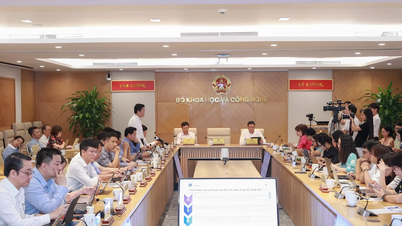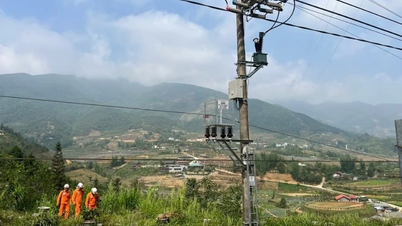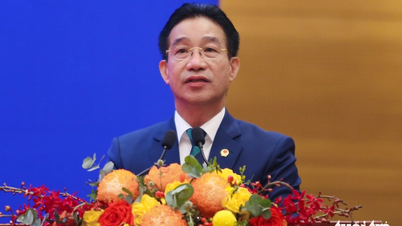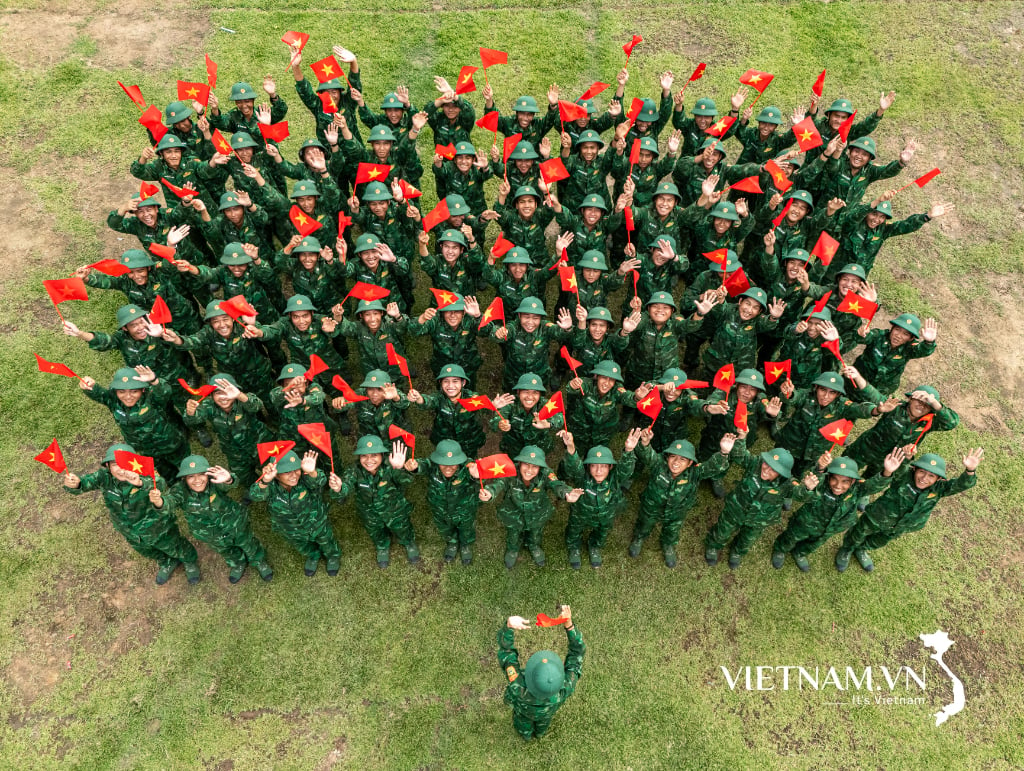
Improving efficiency, optimizing content and gradually personalizing the reader experience to open up new directions for sustainable development of the publishing industry remains a big challenge.
The "easy" and "hard" problems of AI
In recent years, the Vietnamese publishing industry has made clear changes in the face of the new wave of technology. AI is gradually becoming a powerful assistant to publishers innovate their methods of operation. This is both a global trend and an inevitable direction to help the publishing industry overcome traditional challenges, gradually building a foundation for sustainable development in the digital age.
According to a report by the Department of Publishing, Printing and Distribution (Ministry of Culture, Sports and Tourism), by the end of 2024, more than 54% of domestic publishers will participate in e-publishing activities, showing a clear transformation of the entire industry.
Besides, technology platforms such as VoizFM, Waka; electronic library systems such as sachquocgia.vn, thuviencoso.vn, stbook.vn... are also actively applying AI to digitize book collections and bring personalized experiences to users.
Notably, innovation is not limited to large publishers, many private units, technology startups and independent authors in the country have also proactively taken advantage of AI to create content, publish books faster, more flexibly and closer to readers. Through the use of AI to write drafts, create artificial voices for books, and analyze reader behavior data to optimize content, AI is contributing to redefining the entire value chain of the domestic publishing industry.
Technology platforms such as VoizFM, Waka; electronic library systems such as sachquocgia.vn, thuviencoso.vn, stbook.vn... are also actively applying AI to digitize book collections and bring personalized experiences to users.
Director of the Department of Publishing, Printing and Distribution Nguyen Nguyen commented: AI is creating a revolution in the publishing industry. However, the important issue now is to raise awareness, technological capacity and build a suitable legal corridor to ensure that AI is applied in the right direction, effectively and under control. To do this, close coordination is needed between management agencies, publishers and technology enterprises.
In addition, training a team of editors, authors and staff publishing capable of working with the tools is a key factor in maintaining professionalism and ensuring the quality of publications.
Sharing the same view, Mr. Nguyen Canh Binh, Chairman of the Board of Directors of Alpha and Omega Vietnam Books Joint Stock Company, shared: AI does not eliminate the role of humans in content creation, but on the contrary, it will help humans promote their strengths in thinking and emotions. Technical tasks such as preliminary editing, proofreading, or even translation, can be assigned to AI for quick and accurate processing. The publishing industry needs to consider AI as a "colleague" and not a competitor.
At the content production level, AI is being applied by publishers in many stages. According to Ms. Vu Thi Quynh Lien, Editor-in-Chief of Kim Dong Publishing House, AI is a trend, an urgent issue that needs to be considered from two aspects: intellectual property and the role in developing the publishing industry. specifically, AI tools are supporting authors in a stage that consumes a lot of time and money, but what are the advantages and disadvantages, and how to quantify the impact on the publishing industry appropriately?
In addition, intellectual property issues are becoming a “bottleneck” that needs to be resolved promptly. The fact that AI can easily create content makes the question of “who is the author” more complicated. In addition, AI also contributes to the increase in the rate of illegal copying of books, especially ebooks and audiobooks - forms of publishing that are widely distributed through unlicensed digital platforms.
Increase control to avoid risks
It is undeniable that AI contributes to improving productivity, expanding creativity and optimizing processes in the publishing industry. However, the strong and uncontrolled development of AI also poses many challenges, especially in terms of professional ethics, copyright, content quality and the risk of over-reliance on technology.
At many seminars and talks, technology experts said that in order for AI to truly become a positive and sustainable support tool for the publishing industry, there needs to be a synchronous development strategy with specific solutions, focusing on the following groups of issues: Perfecting the legal framework, prioritizing amendments to the Publishing Law; improving technological capacity, training human resources; developing a shared digital data and publishing platform; promoting responsible content creation on the AI platform.
Technology experts warn: If the publishing industry abuses artificial intelligence without control, the consequences will not only stop at content quality but also seriously affect professional ethics, reading culture and the survival of human creative thinking in this inherently humane and intellectual field.
Associate Professor, PhD, literary critic Van Gia believes that the first thing AI affects is the gradual loss of human creative identity. generative, literary, academic or any form of content creation reflects intelligence, emotions and personal experiences. These are factors that AI cannot yet reproduce in an original way.
When the publishing industry relies too much on tools for writing, editing, or designing, the end product can easily become generic, soulless, similar in structure, style, and lacking in emotional depth. If left unchecked, the market will quickly become flooded with mass-produced content, causing readers to lose faith in the quality and authenticity of books. This can push the reading culture into crisis.
The risk of spreading false or half-truthful information is also analyzed by experts. When publishers do not have the capacity to censor or let AI automatically create academic content,educational books, science books, etc., this risk is very high. For example, AI can create a science book based on unverified sources or a life skills book based on short-term trends from social networks. At that time, the publishing industry will no longer be a "gatekeeper of knowledge", but will become a tool for reprinting potential mistakes.
In addition, if the creative process shifts from thinking and feeling to “commanding and censoring” the machine, the author's role will be severely reduced; Instead of being an inspiration, reflecting reality or creating a separate world through words, authors may only be the ones giving orders and editing AI's drafts. This is a risk that affects the quality of creativity, contributing to the decline of the writing profession - one of the spiritual pillars of national culture and knowledge.
Director of the Department of Publishing, Printing and Distribution Nguyen Nguyen emphasized the risk of breaking the labor ecosystem in the publishing industry and content inequality. specific, without a reasonable job transition strategy, the publishing industry may face the loss of long-term professional human resources, weakening the industry from within, making it difficult to maintain long-term publishing quality even when AI technologies can temporarily fill that gap.
If the “AI” trend spreads, small-scale publishers and independent individuals will also have difficulty competing, thereby increasing inequality in market access and readers. As a result, the market may be dominated by technology, significantly limiting the principles of academic freedom and knowledge diversification that the publishing industry always strives for.
AI technology is opening the door to powerful innovation for the publishing industry. However, if not controlled by strategic thinking and ethical foundation, AI can unintentionally erode creative identity, disrupt the knowledge ecosystem and threaten sustainable reading culture. The publishing industry needs to implement technology application and technology orientation in parallel, focusing on people, knowledge as the foundation and creative value as the goal.
Source: https://nhandan.vn/tri-tue-nhan-tao-ho-tro-nganh-xuat-ban-but-pha-post891294.html



























































































Comment (0)